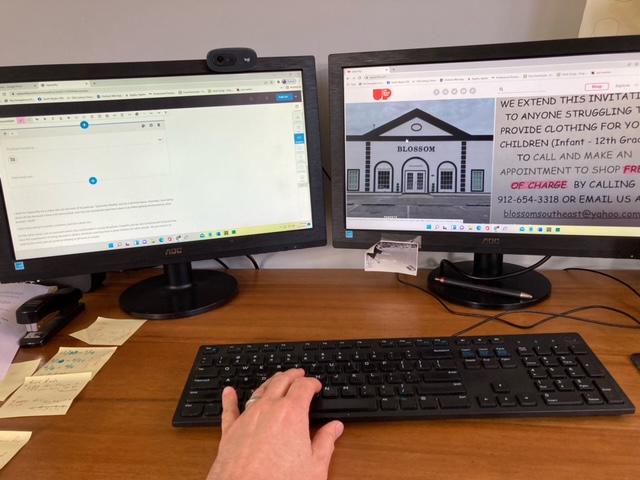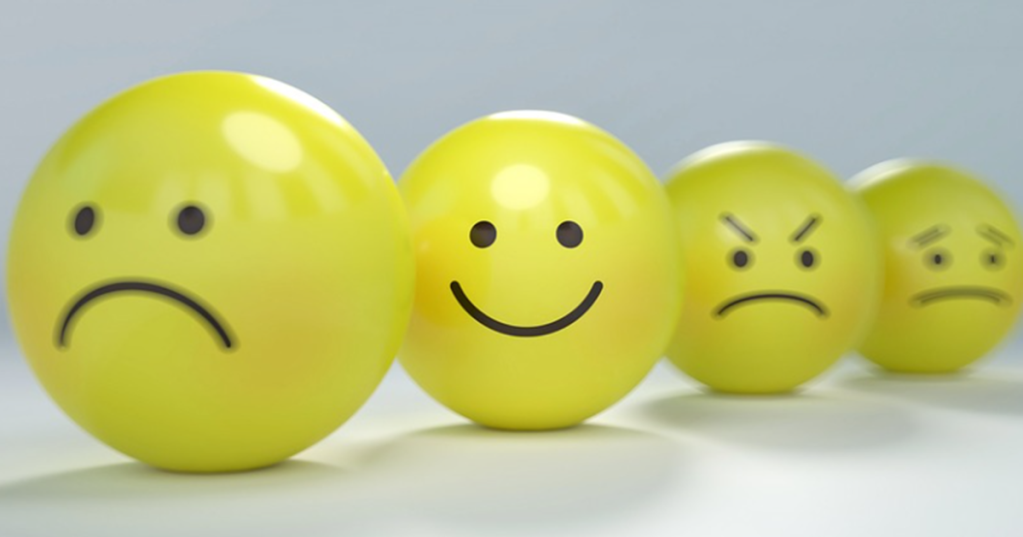A few years ago I had an office job where I sat in a row of cubicles with about a dozen other people. One morning when a coworker walked into the office to start his day, a feeling of dread bubbled up from my subconscious. He was angry and I wasn’t going to be able to escape his feelings.
His desk was about 10 feet from mine and like waves, I could feel his emotions seeping into my body. He wasn’t bothering anyone and was always pleasant to me, but I knew he was angry about something deep down, and I could feel it.
As far as I knew, no one else in the office was having the same experience that I was. I was the only person who found it emotionally exhausting to be in the same room as this person.
I wasn’t sure what to make of this bizarre, unintentional attachment to the emotional states of others until I was listening to a podcast featuring Dr. Drew Pinksy where he mentioned that he was “an emotional sponge” who sucks up other people’s emotions and referred to it as being an “empath.”
That powerful revelation struck me in two ways. I realized that I was probably an empath as well and that I experience emotions differently than others. “One of the hardest things about being an empath is learning not everyone is,” Hannah Ewens at Vice wrote.
PsychAlive describes being an empath as exhausting at times, but not without its benefits.
“Empaths are highly sensitive individuals, who have a keen ability to sense what people around them are thinking and feeling. … often to the point of taking on the pain of others at their own expense,” PsychAlive says.
“On the bright side, empaths tend to be excellent friends,” PsychAlive continues. “They are superb listeners. They consistently show up for friends in times of need. They are big-hearted and generous. Empaths also tend to be highly intuitive and emotionally intelligent.”
As I started to look into the idea that I may be an empath, I began to consider the emotional sway my wife has over me. If she is stressed or tired, it makes me uncomfortable because I cannot escape her emotional state. It’s not that she’s overly emotional, but that I lack the force field that shields me from people’s emotional states, especially people close to me.
That’s why I get a huge feeling of relief when my wife transitions from being in a negative mood to a positive one. But, on the other hand, she doesn’t seem to be swayed one way or the other by my emotional state. It’s not that she’s callous, it’s just that she has a healthy emotional distance from me.
The problem is that it’s nearly impossible to explain what this feels like to someone who isn’t an empath, and attempting to do so makes me seem a little unstable. So I keep these disturbances to myself, which probably isn’t healthy.
Caroline Van Kimmenade, who runs courses for empaths who want to understand their power, explained what it’s like to be an empath. “It’s like a football match where everyone gets hyped up and starts waving and then the mob things start sweeping you up, and you barely know you’re doing it,” she explained.
“We can all experience that, but it doesn’t mean you’re an empath. But for an empath, it’s that multiplied and applied to everything all of the time. Empaths are constantly in a giant football stadium where they’re reacting to bigger things going on from all directions,” said Van Kimmenade.
When I realized I was an empath it helped me make sense of a part of myself that always felt contradictory. I am a person who has no problem being alone for long periods of time, but I’m also totally comfortable in social situations.
I work for Upworthy as a writer and the host of its podcast, “Upworthy Weekly,” and do it all from home. Honestly, I love being alone all day because I have a lot more power over my own emotional state than when I’m in an office getting bombarded by other people’s “stuff.”
I also enjoy going to movies, concerts and bars alone, too.
On the other hand, I am an extrovert who’s very comfortable in social situations. Empaths can be very social people because they have the superpower of being attuned to others’ emotions and they have a great intuition for other people. We are experts at reading the room and are great at relating to all sorts of people.
Dr. Judith Orloff, the author of “The Empath’s Survival Guide: Life Strategies for Sensitive People,” says that extroverted empaths “crave the dopamine rush from lively events. In fact, they can’t get enough of it.”
One of the strangest things about being an empath is having a heightened sense of smell. My sense of smell is so keen that I can’t wear cologne because I never go nose blind to the scent and it’ll bother me the whole night. The same goes for scented lotions. The interesting thing is that this isn’t just in my head; researchers have found that the part of the brain that recognizes emotions overlaps with the brain areas associated with smell.
So what causes someone to be an empath?
“It can be both nature and nurture. Some empaths are born empaths the minute they come out of the womb they are these sensitive creatures feeling the world with the palm of their hands,” Dr. Orloff told Upworthy.
Dr. Orloff says that research shows empaths have different brain chemistry.
“Research is suggesting that the mirror neuron system in the brain is on overdrive with empaths—meaning their compassion is hyperactive versus narcissists who have hypo-active mirror neurons and empathy deficient disorder,” Orloff said.
Orloff adds that even though men and women are both empaths, it can be harder for men to come to terms with their sensitivity. She runs an empath support community where men are much more reluctant to share.
“When the men do share, they express the shame about being sensitive, how it isn’t masculine and how they were bullied as children and made to feel ashamed to be crybabies rather than beautiful sensitive beings,” Orloff told Upworthy.
I had never heard of the term empath until about five years ago, but after coming to the realization that I probably am one and learning about the positive and negative aspects of this psychological trait, I feel that I’ve become better at navigating my emotional life. I’m getting better at seeing the difference between my emotions and those of others and making sense of the difference.
On the positive side, I’ve developed greater trust in my own intuition knowing that, as an empath, when I get a sense about someone, I should go with it because there’s a good chance I’m right. I’ve also learned to be less judgmental of those around me who I think aren’t as sensitive as they should be. They’re just not experiencing life the same way.
This article originally appeared 3 years ago.








































